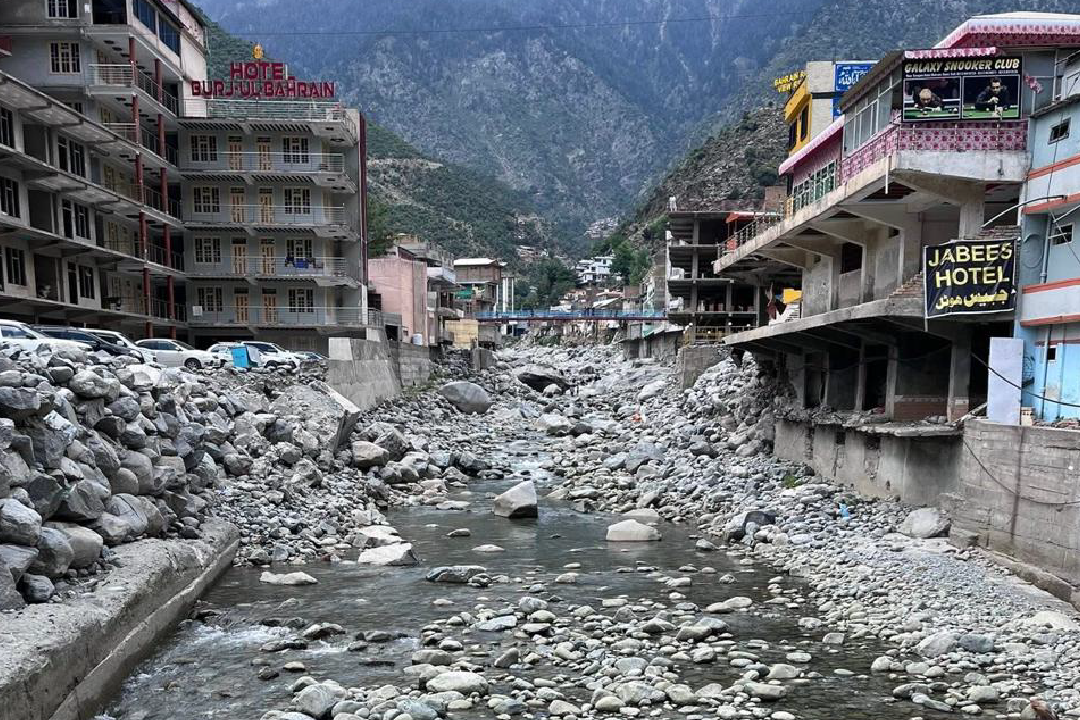In August last year, the World Bank received an unusual letter which neither requested a loan or development project nor sought any advice on economic matters. This letter was a plea from the people of the Torwali community living in the upper region of the Swat Valley who have been living there for centuries.
The Torwali community has appealed to this world’s largest development and investment institution to recognise Torwali as an ‘indigenous community’ of the Bahrain area of the Swat district.
The letter sent online to the World Bank claims that the Torwali community meets the criteria set by the International Labour Organization (ILO), the Office of the High Commissioner for Human Rights (OHCHR) of the United Nations and the World Bank.
The letter begins by saying that although the Constitution of Pakistan does not recognise any indigenous community living in the country, including the Torwali community; however, it is necessary for the World Bank to recognise the indigenous status of the Torwali community in order to protect it from the negative impacts of ongoing development projects in the area, save their endangered language and culture, and ensure the implementation of the bank’s relevant policies.
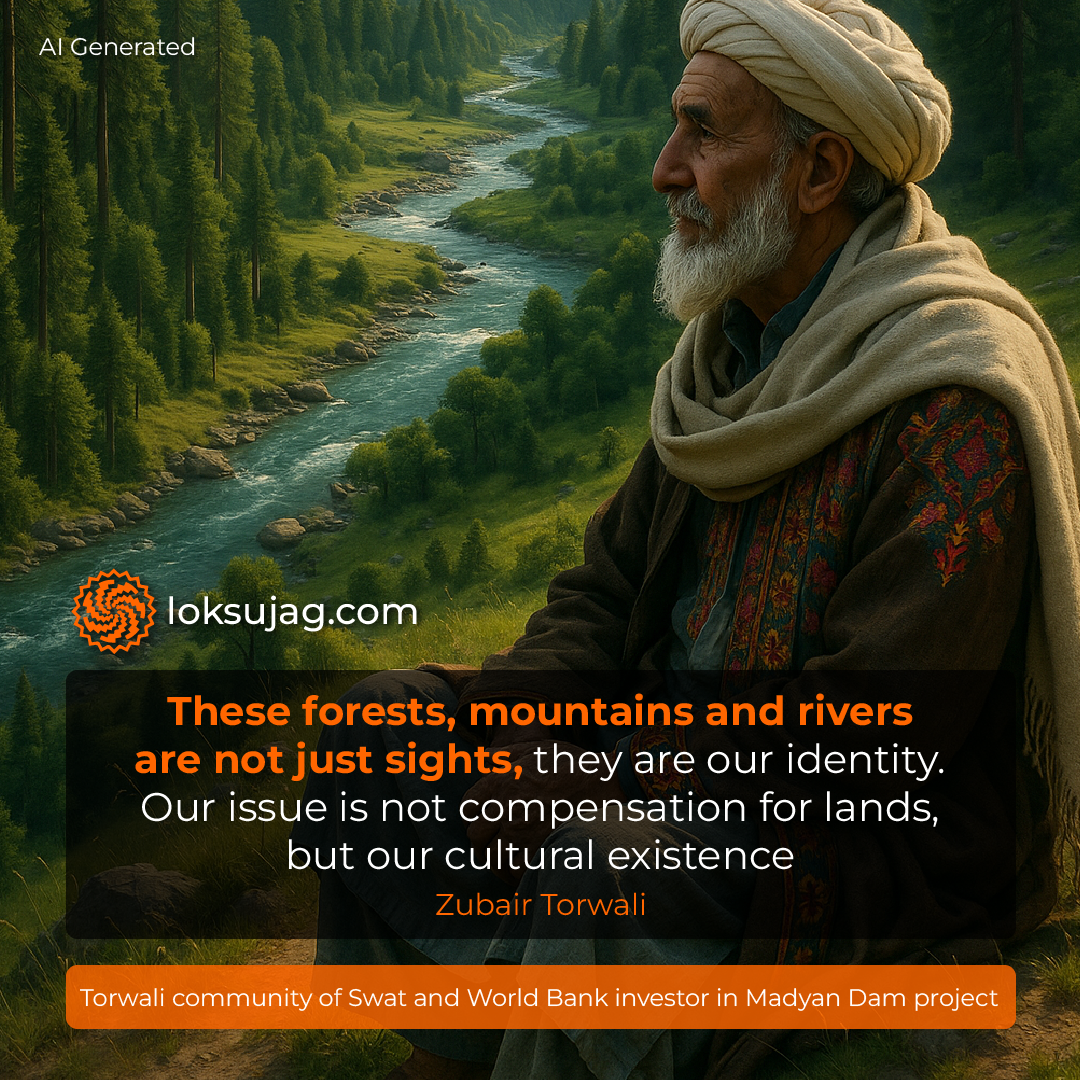
One-third of 150,000 Torwalis have already migrated for employment
Zubair Torwali, who wrote the letter to the World Bank, is the head of the Institute for Education and Development in Bahrain and a researcher who has been working for two decades on education, Torwali language and culture. He says that the Torwali community is settled in the upper areas of Swat, especially from Bahrain to Kalam, on both sides of the Swat River and in the Bashigram Pass, east of Madyan, but now its existence is threatened. Citing various research sources, he claims that like other nations of the Hindu Kush, the Torwali people have been living in this region for centuries with their ancestral religion and culture.
“Until about 400 years ago, their rituals resembled those of the Kailash people. After religious and political changes, the Torwali community lost many of their traditions, but the Kailash people still maintain their ancient identity.”
According to Zubair, the Torwali community is keeping its language alive, but now this language is among the more than 70 languages of Pakistan whose survival is threatened according to UNESCO. Most of the languages that are at risk of extinction in Pakistan are spoken in the northern regions.
Zubair Torwali says that during the census, he also sent his people along with the government teams. According to his estimate, the number of Torwali speakers in almost all the villages of Kalam Valley and Bahrain, Laikot, Arianai and the banks of the Bashirgam River is about 150,000. About 33pc of them have migrated to big cities and other areas due to lack of basic facilities and employment opportunities in their own area. Reckless development projects are taking away more people’s livelihood, environment and resources.
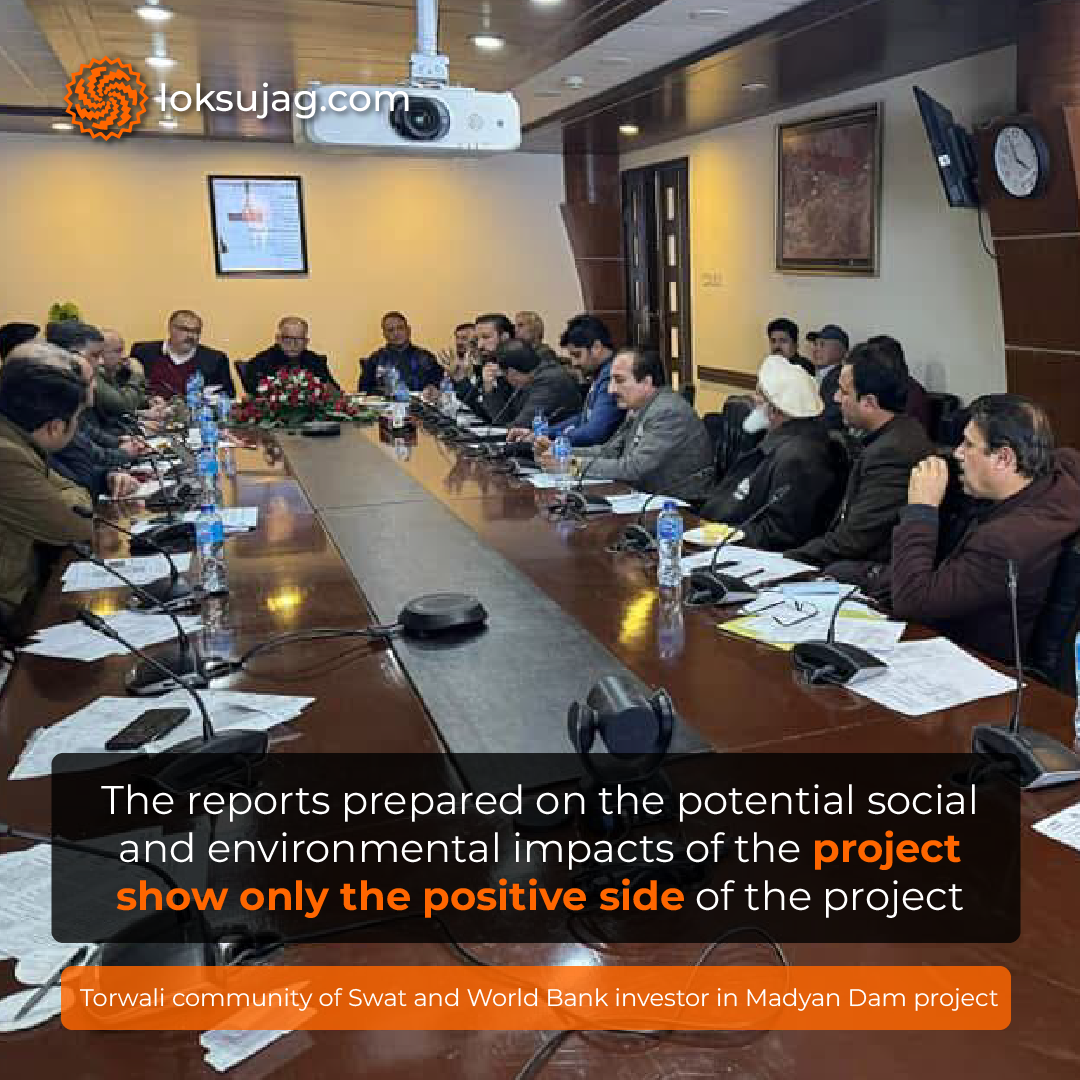
‘Missing information’ in hydro project reports
After the Daral Khwar Hydropower Plant in tehsil Bahrain, the Madyan Hydropower Project is being built, financed by the World Bank. The feasibility report of the Madyan project indicates that its total area will cover 107 sq km. Under this project, the river will be diverted through a .811 km long tunnel to bring water to the headworks, which will be excavated by drilling and blasting.
According to this report, only 15 houses will be affected by the power project, and total 176 people live there, from whom about 91 acres of land will be acquired permanently and seven acres temporarily. The said land includes agricultural land, barren land or part of the river. A total of 1,423 trees will be cut for the Madyan Hydro Project, including 950 fruit trees.
The report prepared in 2009 only said that all possible options had been considered for the resettlement of the affected people, which would be implemented by the hydropower project administration.
The social and environmental report of the Madyan Power Project has acknowledged that there is a serious lack of information regarding the ecological characteristics of the Swat River. There is no reliable data on the types of fish, nor is there any knowledge about the insects, etc. found in the river area.
Similar reports were also made during the construction of the Daral Khwar Dam, which is being built some distance from Madyan, seven kilometers from Bahrain city, where the diversion of the Daral River, a tributary of the Swat River, has now rendered about 16 villages barren.
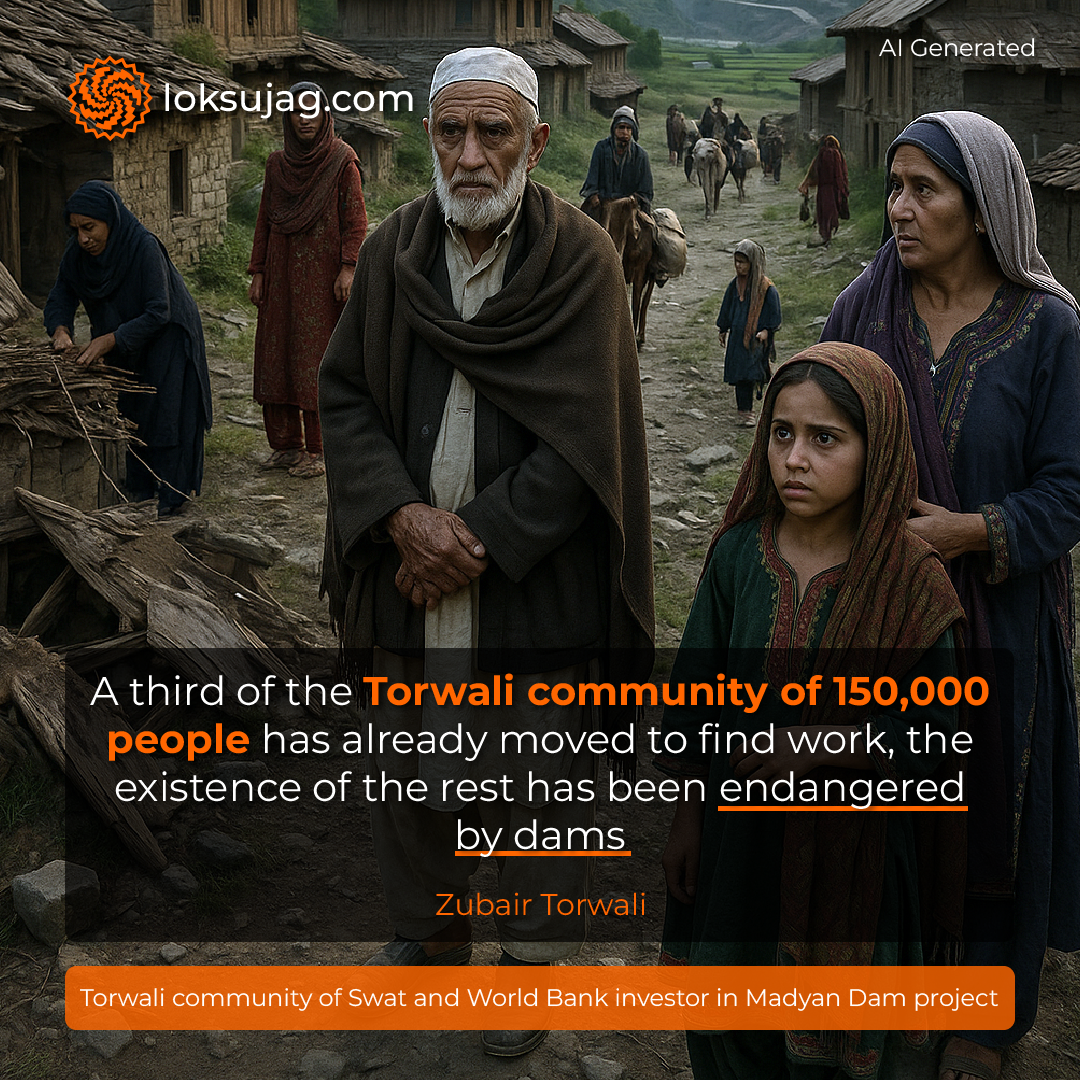
‘Our issue is not compensation but our existence and environment’
The Torwali community is not opposed to any development work, but its objection is only to these reckless projects that have become a threat to its existence.
Zubair Torwali says that in official reports, only those families whose houses, lands or shops are destroyed by development projects are considered victims of affectees. But the details of the losses are missing for those whose valleys get barren, springs dry, fields are deserted and tourism and businesses have been destroyed.
“Our issue is not compensation for properties or lands, such affected families got compensation from Daral Khwar, they will get it here too. The real issue is our existence and the environment here.”
Contrary to the figures in social and environmental reports, Zubair claims that at least 15,000 people have been displaced by the Daral Khwar Dam and 65,000 people are being affected by the Madyan Hydro Project, majority of them belonging to the Torwali (indigenous community).
Aizaz Torwali, a researcher and lecturer at the University of Peshawar, says the Torwali people are the custodians of ancient herbal medicine, having a deep knowledge of herbs.
“The natural resources of their areas are now under threat. After the Daral Power Project, the springs dried up and the lands became barren, and the devastating floods further exacerbated the crisis. Many villages were deserted, the local economy was badly affected, making the area unrecognizable.”
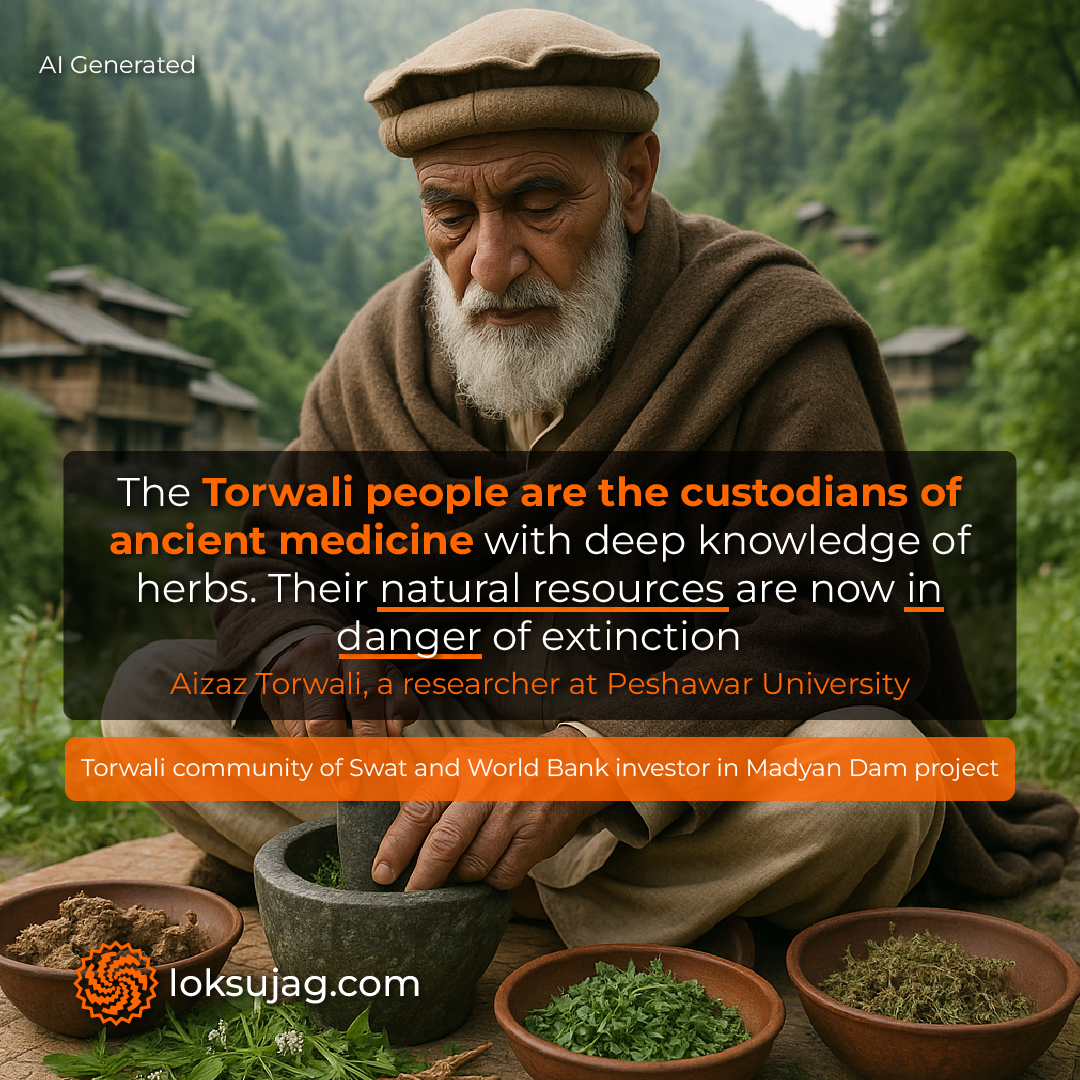
Call for action under the Indigenous Peoples Policy Framework
The World Bank says that around 476 million indigenous peoples worldwide are vital partners in development, holding rights over about a quarter of the world’s land area. This area covers about half of the world’s biodiversity reserves and natural forests. The bank acknowledges that despite their important role in environmental protection, indigenous peoples are disproportionately affected by poverty.
“Indigenous peoples/nations constitute only 6.2 percent of the world’s population but 18.2 percent of those living in extreme poverty. Their average life expectancy is up to 20 years less than the general population and they face severe barriers to access to education, basic services and employment.”
The World Bank claims that it works with its member countries to promote the well-being of the local people.
“We work with our member countries to highlight the issues and priorities of local people. If an investment project involves indigenous peoples or has a collective connection to these areas, we ensure that they are meaningfully consulted and that steps are taken to avoid or mitigate any potential negative impacts.”
The Torwali community expects the World Bank to take steps for the community in Bahrain under the ‘Indigenous Peoples Policy Framework’ during the investment process.
“Our ancestral forests, springs and rivers are not just a sight to behold, they are our identity. Climate change and unbridled development pose serious threats to us. If our existence is ignored, our nation will disappear along with our language and history,” members of the Torwali community say.
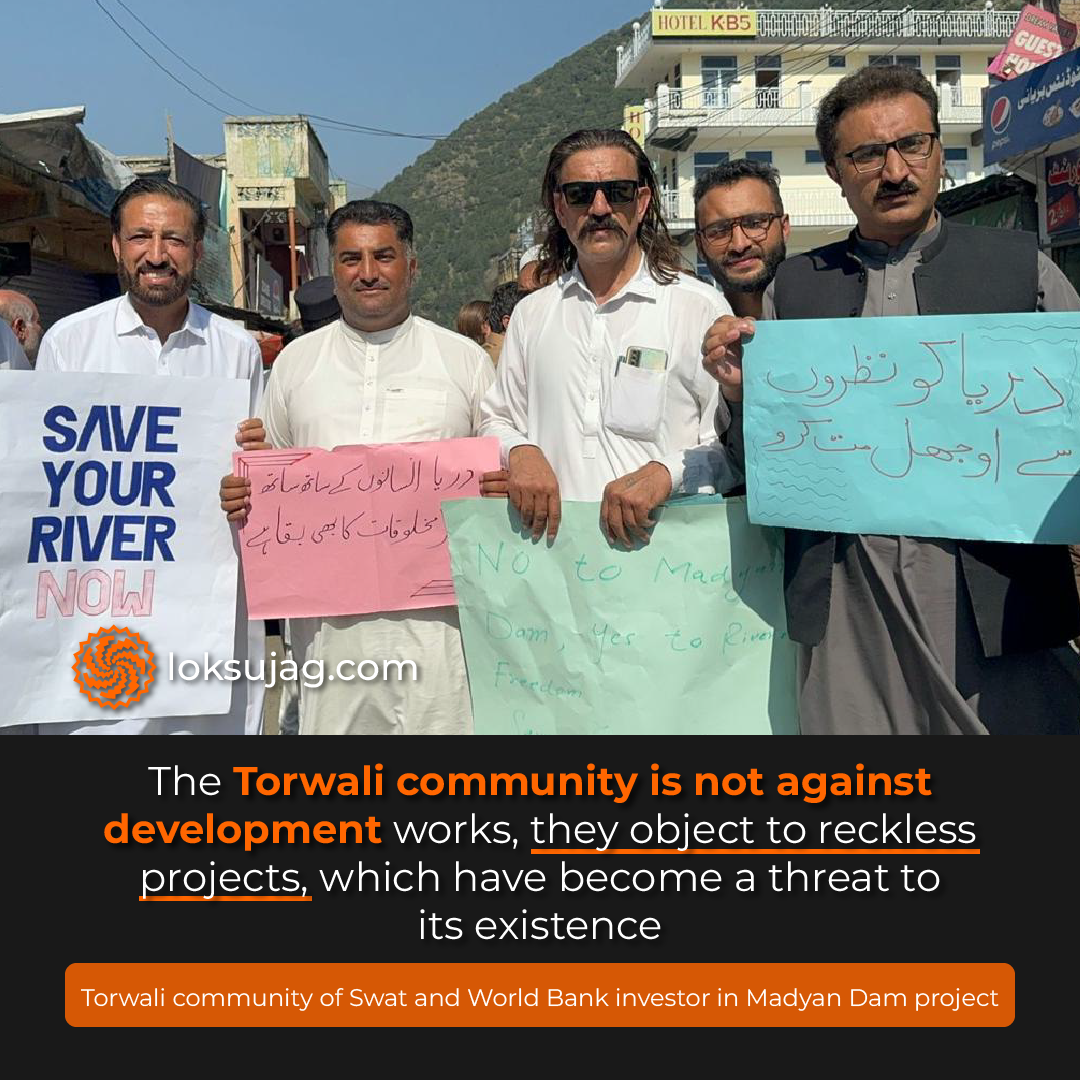
World Bank team to determine status of Torwali community
Abdul Karim, 66, a resident of Bahrain, says that there is no major hospital or any basic facility in the entire area. There is only one high school for female students, and decisions on forests, tourism and water resources are made without local consultation.
A World Bank team arrived in Swat on June 17, 2025, almost a year after the Torwali community’s letter was sent, and spent four days visiting Bahrain, Darulai, Gurnai, Kalam, Shah Gram and nearby villages.
The team members held detailed discussions with local elders, women, youth and representatives of social organisations to obtain information about the ethnic, linguistic and cultural traditions of the Torwali community.
According to Zubair Torwali, his letter formed the basis of several international meetings and negotiations. In a formal meeting with World Bank representatives in Islamabad and then in a meeting in Peshawar in January, it was decided that the World Bank would determine the ancestry/locality of the Torwali nation itself.
The two-member World Bank team is compiling its report after reviewing the local language, culture and conditions.
However, no response has been received from the Pakhtunkhwa Energy Development Organization yet.
Zubair Torwali is hopeful as he says, “We are confident that once the World Bank report comes out, the Torwali community will be officially recognised as an indigenous people, which will help them protect their language, rights and resources.”
Published on 3 Jul 2025
